Physical therapy exercises for dementia patients is really important as it helps to maintain mobility, improve their health and their quality of life. Exercise can make a tremendous difference to a person’s health. Regular exercise lowers the risk of heart disease, stroke, cancer and Type 2 Diabetes.
It is particularly good for people with dementia as they cannot always explain how they are feeling or any aches and pains they have. With careful assessment, their physiotherapist can locate any problem areas in their body and work to resolve – or at least – minimise their discomfort.
‘Physical therapy, also known as physiotherapy, may include certain exercises, massages and treatments based on physical stimuli (e.g. cold, heat, electrical currents or ultrasound). The purpose of physical therapy is to relieve pain, help you move better or strengthen weakened muscles’ Source
Physical Therapy Exercises for Dementia Patients

Why is physical therapy so important?
Gentle exercise is a holistic treatment as it not only keeps the body strong so that the person can continue everyday activities, but exercise is really good for your loved one’s mental well-being.
In addition, it lowers levels of stress and anxiety and raises a person’s mood. As a person ages and mobility becomes more limited, the importance of physiotherapy increases.
Physiotherapy can help an individual with dementia to remain as independent as possible with mobility and the ability to carry out normal activities of daily living. Source
What exercises does a physiotherapist give dementia patients?

Physiotherapists complete a particular range of exercises and movements with each dementia patient – depending on their individual needs.
Some of the exercises are designed to improve and maintain movement and muscle strength. Others will be focused on a particular problem area.
The physiotherapist will show you certain easy exercises that you and staff at the dementia care centre can encourage your loved one to complete on a daily basis. These exercises will need to be completed regularly if they are to have any success.
Physiotherapists will complete certain passive movements with your loved one targeting a particular part of the body – for example the lower back if they have backache or stiff joints.
They can also advise you on other physical therapy exercises for dementia patients – activities that will be particularly beneficial for your loved one.
Is massage good for dementia patients?
 Physiotherapists often use massage for their patients. If your loved one enjoys a massage, it is certainly something you can consider to do at home.
Physiotherapists often use massage for their patients. If your loved one enjoys a massage, it is certainly something you can consider to do at home.
The five senses – especially touch – are of great importance when interacting with a person with dementia. Having a massage will not only benefit them physically to improve stiff and aching joints, but it will also ease feelings of tension and anxiety. Massage also helps a dementia patient to not feel so isolated.
Some dementia patients do not like being given a massage. They become agitated. This is because they feel that the massage is an invasion of their private space.
Physiotherapists closely monitor the effect of the message on their patient. They watch for any non-verbal cues from the patient that indicate that they are finding the massage uncomfortable.
What other therapies are offered?
 There are a number of physical therapies that are based on physical stimuli that could be offered to your loved one by the physiotherapist. These include :
There are a number of physical therapies that are based on physical stimuli that could be offered to your loved one by the physiotherapist. These include :
Manual lymphatic drainage
This is a special type of massage that helps to drain excess fluid from the tissue. It has been found to be effective for such conditions as rheumatoid arthritis. It can also be used to reduce anxiety and promote sleep.
Electrotherapy
A weak electric current is used in this treatment which is effective for relaxing muscle spasms, and increasing blood circulation in a particular area. Electrotherapy is also used in muscle rehabilitation and in the management of chronic pain.
Heat therapy
There is a variety of different heat treatments used by physiotherapists including warm baths, warm wax or mud packs, heat lamps and ultrasound. The whole body can be treated or just an area or limb. This treatment is used for pain relief and to increase blood flow.
Cold therapy
In contrast, cold therapy is used just for short sessions with cold water, ice and cold air. Cold therapy can be very effective for reducing swelling and pain and other conditions including osteoarthritis, muscle strains, and tendinitis.
Physical therapy exercises for dementia patients that can be done at home
Much physical therapy can be done in the home environment with dementia patients. Exercises range from everyday tasks such as getting washed and dressed, getting in and out of the bath/shower and on and off a chair.
Balance is of key importance so regularly guiding your loved one up and down stairs and steps is beneficial, as well as negotiating slopes. Simple balance exercises completed regularly are also beneficial and these can include standing on one leg.
Getting outside for a walk in the country is excellent exercise. Other activities include swimming, gardening and playing bowls or skittles – which all have the added bonus of being sociable too. Yoga, water aerobics and dancing are other good forms of exercise to consider too.
Regular hand massages bring many benefits…
 Giving your loved one a hand massage can be a very special time for you both and something they will enjoy – especially if your use a cream or oil with their favourite fragrance such as almond or coconut.
Giving your loved one a hand massage can be a very special time for you both and something they will enjoy – especially if your use a cream or oil with their favourite fragrance such as almond or coconut.
On the website of The Registered Massage Therapists Association of Ontario the benefits of giving a simple hand massage regularly are explained –
Regularly applied hand massage helps decrease agitation in people with dementia, which includes decreasing the frequency and intensity of agitated behaviours such as wandering. Massage therapy may also offset the social isolation that can lead to this agitation and related behaviour. It can also assist people with dementia feel comforted, especially in a residential care environment, as it may be the only positive physical touch they regularly receive.
Giving a hand massage is straight forward and is something that your loved one can enjoy – especially if you are visiting them in a dementia care home.
The massage should take about five minutes to complete. You massage one hand and then the other. Light massage movements on each of the fingers, thumbs, palms and front of the hands will make a positive difference.
Final Thoughts – Physical Therapy Exercises for Dementia Patients
The most important point is, physical therapy is essential for dementia patients for as long as possible as it will certainly have a positive impact on their health, mobility and quality of life.
The physical therapy exercises for dementia patients outlined in this article are easy to do at home.
If you find that encouraging them to exercise is proving challenging, it could be because they are feeling pain which they cannot explain.
Seeing a physiotherapist is the ideal solution as they can help ease any physical problem and give you plenty of good tips and advice on physical therapies that you can complete with your loved one….




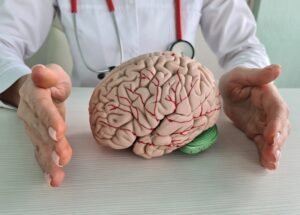


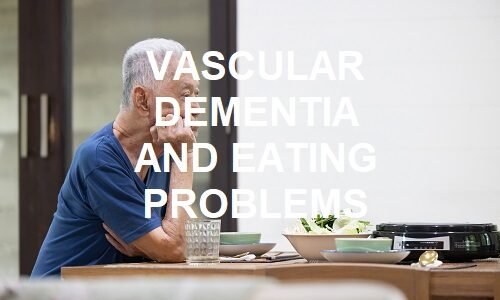


















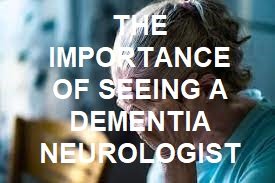
 A
A  Although all neurologists can evaluate and diagnose your loved one, if you can be referred to a Dementia neurology, this is even better.
Although all neurologists can evaluate and diagnose your loved one, if you can be referred to a Dementia neurology, this is even better. If you can arrange through your GP to see a dementia specialist, this will be a huge advantage. These specialists are well aware of what is currently being learnt about dementia.
If you can arrange through your GP to see a dementia specialist, this will be a huge advantage. These specialists are well aware of what is currently being learnt about dementia. It is crucial to have someone experienced to
It is crucial to have someone experienced to 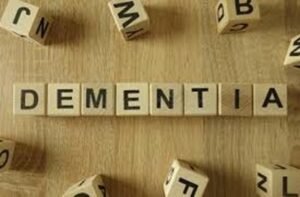 Memory
Memory![Specialist Dementia Care Homes [Quick Guide] Specialist Dementia Care Homes](https://readementia.com/wp-content/uploads/2023/08/Specialist-Dementia-Care-Homes-3.jpg)
 Specialist dementia care homes can either be residential or day-care centres. They are cleverly designed to create a warm, friendly environment that will quickly become familiar to your loved one.
Specialist dementia care homes can either be residential or day-care centres. They are cleverly designed to create a warm, friendly environment that will quickly become familiar to your loved one. When a person with dementia first goes to the home, the members of staff are keen to spend time with their carer. This is so they can understand the dementia patient’s life story. By doing so they can create a
When a person with dementia first goes to the home, the members of staff are keen to spend time with their carer. This is so they can understand the dementia patient’s life story. By doing so they can create a  When memory care homes are being designed, the
When memory care homes are being designed, the  As well as having easy access within the home, it is important that dementia residents can freely move around the garden.
As well as having easy access within the home, it is important that dementia residents can freely move around the garden. The key component in a specialist dementia care home is its staff. Staff members take a keen interest in all the patients and know each patient’s likes and dislikes, family history and recent experiences.
The key component in a specialist dementia care home is its staff. Staff members take a keen interest in all the patients and know each patient’s likes and dislikes, family history and recent experiences. While there are a number of specialist dementia care homes, many care homes do not fully specialise in the care of dementia patients but have a dementia care unit which is a separate section, floor or wing in the home.
While there are a number of specialist dementia care homes, many care homes do not fully specialise in the care of dementia patients but have a dementia care unit which is a separate section, floor or wing in the home.


 As well as offering smaller meals, it is important to check that your loved one feels comfortable at the table and that their chair is at the correct height and distance from the table. Before you serve the meal, check it is the correct temperature and not too hot
As well as offering smaller meals, it is important to check that your loved one feels comfortable at the table and that their chair is at the correct height and distance from the table. Before you serve the meal, check it is the correct temperature and not too hot

 Regular dental treatment for dementia patients can highlight a variety of dental problems that they might not be able to explain but could be causing them pain, anxiety and loss of appetite.
Regular dental treatment for dementia patients can highlight a variety of dental problems that they might not be able to explain but could be causing them pain, anxiety and loss of appetite. It is important to choose the dentist who treats your loved one carefully. Perhaps your family dentist is ideal and has experience of working with dementia patients and the elderly.
It is important to choose the dentist who treats your loved one carefully. Perhaps your family dentist is ideal and has experience of working with dementia patients and the elderly.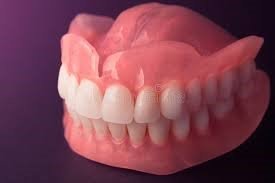 People with dementia are prone to tooth decay and
People with dementia are prone to tooth decay and You may find that your loved one may have forgotten how to clean their teeth.
You may find that your loved one may have forgotten how to clean their teeth. Maintaining good oral hygiene can be challenging, but there are some foods and drinks that help keep teeth clean too and minimising your loved one’s sugar intact will be beneficial too.
Maintaining good oral hygiene can be challenging, but there are some foods and drinks that help keep teeth clean too and minimising your loved one’s sugar intact will be beneficial too.